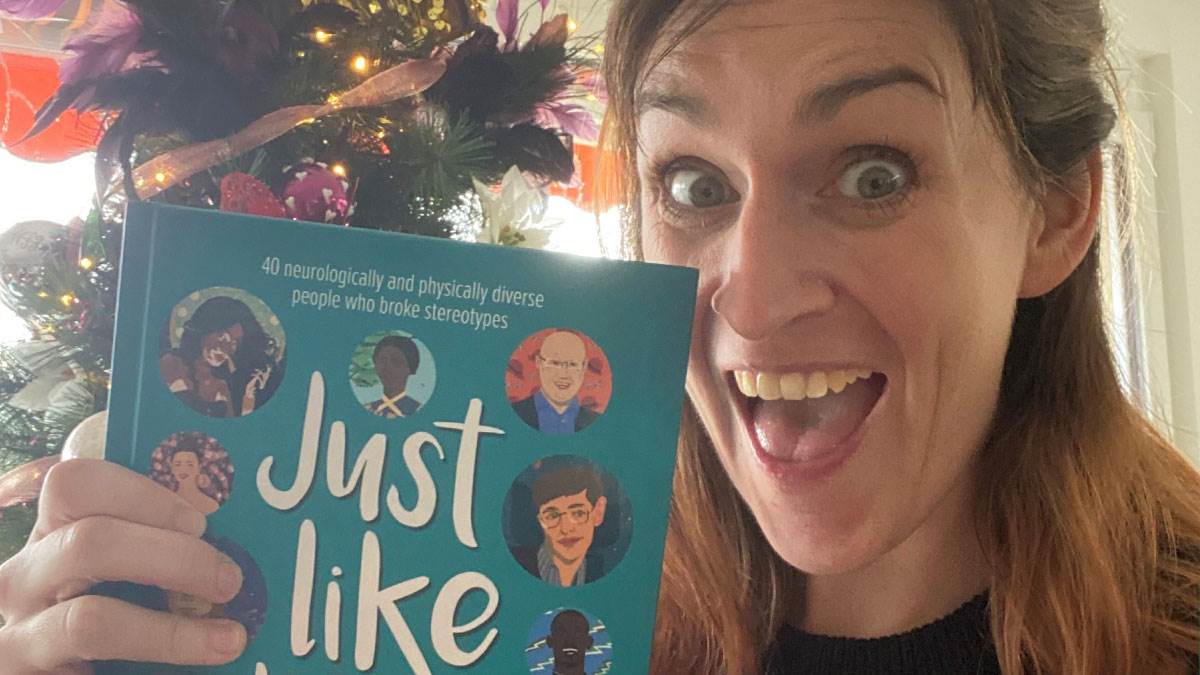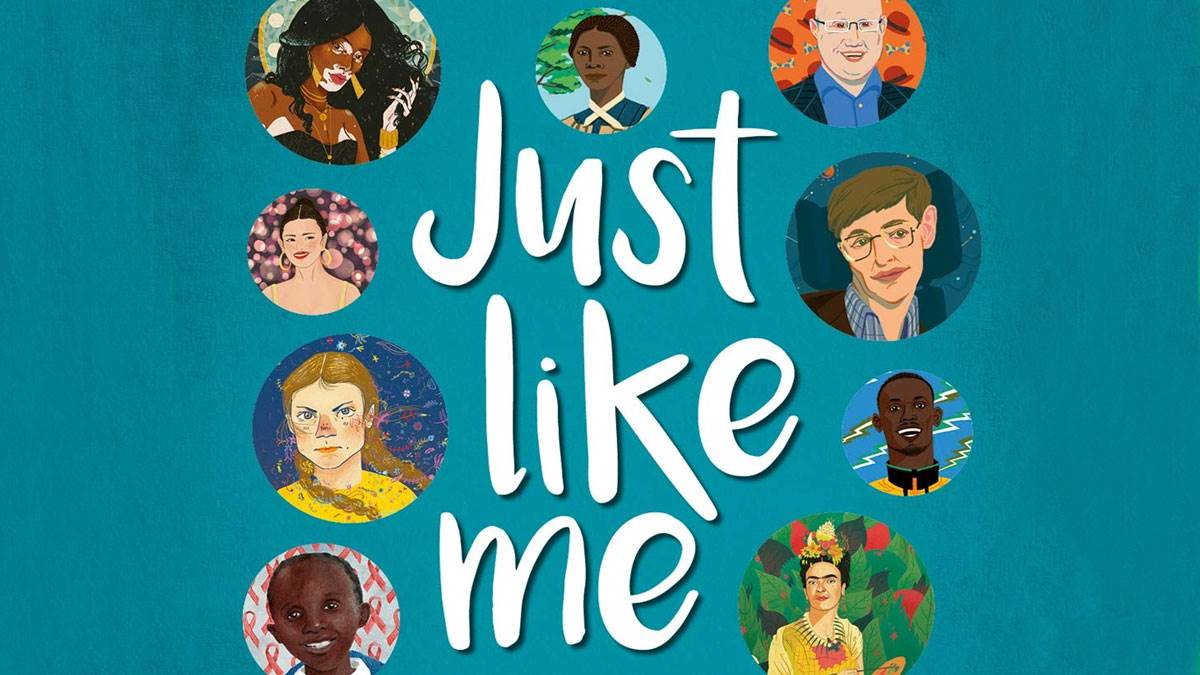So what's normal? Why we need to challenge stereotypes and celebrate ALL our differences
Published on: 01 June 2021 Author: Louise Gooding
Louise Gooding talks about her debut book, being a neurodivergent author and why we should all consider our choice of language.
 Author Louise Gooding holding a copy of her book Just Like Me
Author Louise Gooding holding a copy of her book Just Like Me
Being neurodivergent
Yes, I’m a neurodivergent author. But before I go on, first let me explain my understanding of the terms often used around neurodiversity.
In my opinion, we are all neurodiverse. Our brains are highly diverse in the ways they function, work and think, yet people often tend to use the term "neurodiversity" when specifically highlighting ADHD (Attention Deficit Hyperactivity Disorder), Tourette’s, autism, etc.
If we break down neurodiversity into separate categories, it’s actually better to use terms like "neurodivergent" and "neurotypical".
So what’s the difference?
Neurotypical means someone who has typical developmental and cognitive abilities. You may have also heard this referred to as "normal".
I just need to clarify that no, this is not "normal" – everyone has their own life experiences, which are normal to them.
Neurodiversity as a whole is normal; it shouldn’t be specific to neurotypicals.
"Neurodivergent" covers the autistic spectrum, ADHD, dyslexia, Tourette’s, and other. People whose brains are maybe "wired a little differently”, so whose brains function in a way that's unique to them.
The power of words
Anyone who has picked up a copy of my book Just Like Me knows that a lot of the inspiration for writing this book comes from within my own neurologically and physically diverse family.
Those who really know me, know where and how the actual spark was lit.
I had been attending a children’s writing conference, listening to a wonderful speaker who spoke of the importance and power of words, making space for marginalised voices. And how, most importantly, if you wanted to tackle a marginalised voice in your manuscript, make sure you do it right. With respect, and with a lot of research.
It was fascinating and an absolutely brilliant talk but (and it’s a big but) they kept using words like "crazy" or "mad" to describe people or situations they had faced.
Triggering terms
That really got me thinking! Because if we were to sit there and hear how language and words can affect a person, then why weren’t words which could possibly be triggering for a neurodivergent person or someone with mental health conditions being considered, too?
The speaker had no ill intentions but it got me thinking about how such words can be thrown around without much thought.
Growing up as neurodivergent, I’m used to hearing these words, but a little more targeted towards my behaviour. I know that there also is a tendency to link negative language with ADHD, autism and other neurodivergent traits.
Something my ADHD daughter still deals with.
What does it mean to have ADHD?

Just Like Me, with illustrations by Melissa Iwai, Caterina Delli Carri, Cathy Hookey and Angel Chang
ADHD = naughty, difficult, disorganised, moody, boisterous, chaotic, loud, distracted. Right?
Wrong. While, yes, some of these behaviours may pop up, where were the positive traits, behaviours and words? Loving, empathetic, creative, outside-of-the box thinkers, bubbly, kind?
My own daughter was deeply affected by the way others saw her, treated her, and spoke to her. She ended up developing ODD (Oppositional Defiant Disorder) due to RSD (Rejection-Sensitive Dysphoria) and PTSD (Post Traumatic Stress Disorder). She felt alone and isolated.
Where were the positive role models, the stories, the people who were like her? Yes, she had me, but surely we weren’t alone?
When I started researching people who could be considered a “ADHD ambassador”, my daughter was so excited. Each time I shared the people I had discovered in researching the book, she exclaimed: 'They are just like me!' When I told my publishers about this reaction, they agreed that she had come up with the PERFECT title. Just Like Me.
Unheard voices
The more I dived into this idea, the more people kept popping up – people who, until now, may not have had their stories or names heard or shared before. Others who were definitely recognisable.
I soon realised that it wasn’t just neurodivergent voices that were going unheard, but disabled people’s voices too. A brilliant writing friend and her daughter suggested I consider including Usain Bolt because he had scoliosis, just like her daughter. Frida Kahlo lived with chronic pain, just like my middle daughter and I do.
But these stories were about more than disability, mental health or neurodiversity – they were about real people, doing amazing things and who challenged stereotypes. People who were changing the way the world worked or how other people viewed physical and neurological diversity.
These stories needed sharing.
So I wrote this book for physically and neurologically diverse children, to feel seen. I also wrote this book for kids who aren’t physically or neurologically diverse.
For both to discover stories about great people, doing great things and, at the end of the day, to understand that we are all different and unique in our own way, and that doesn’t ever make any of us ‘less’.
On her website, Louise offers a neurologically and physically inclusive reading list from picture book through to young adult, as well as further reading about neurodiversity and resources that can be used alongside the book for extra in school or home school learning: louisegooding.com
Topics: Bookmark, Disability, Features





